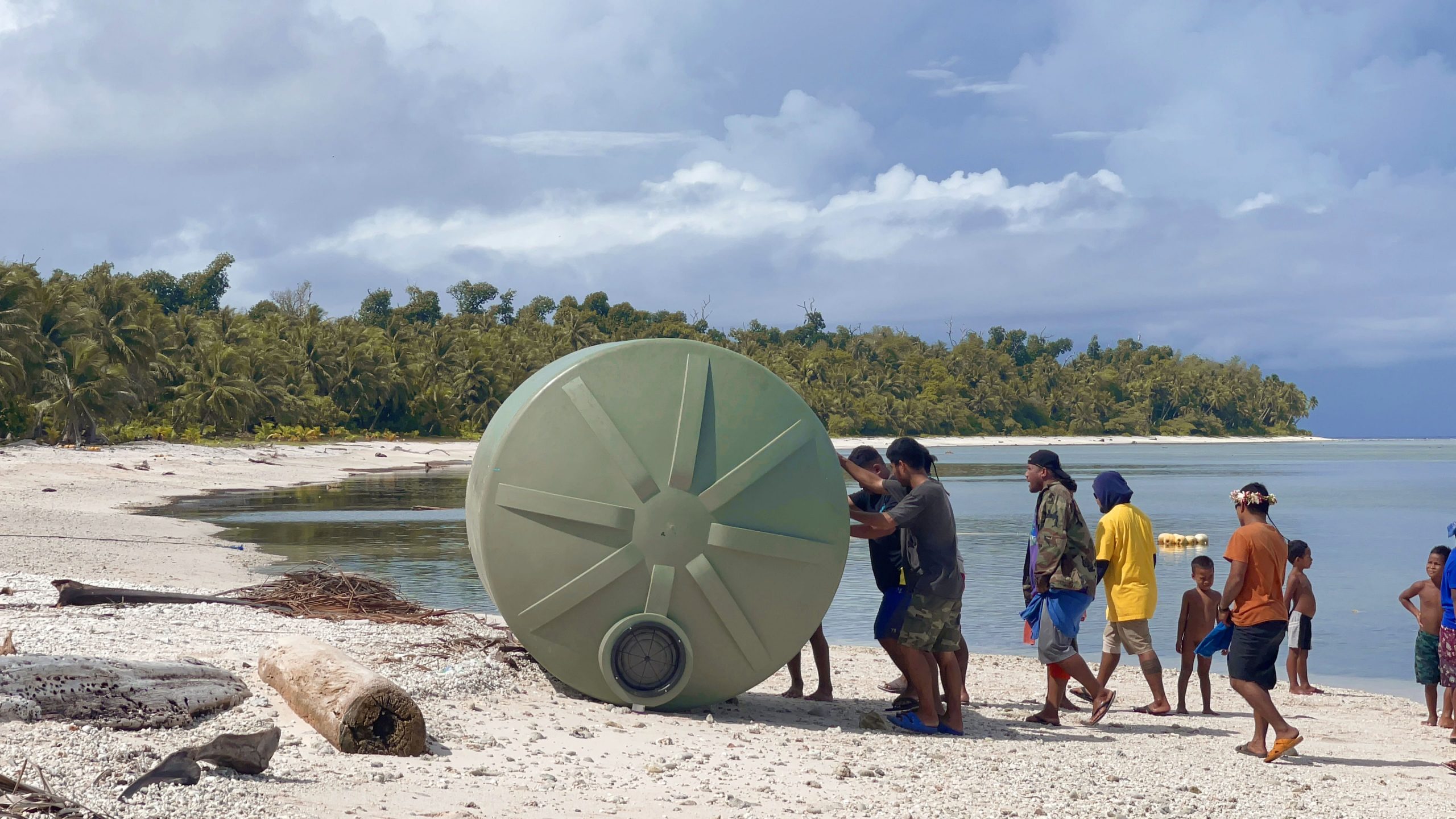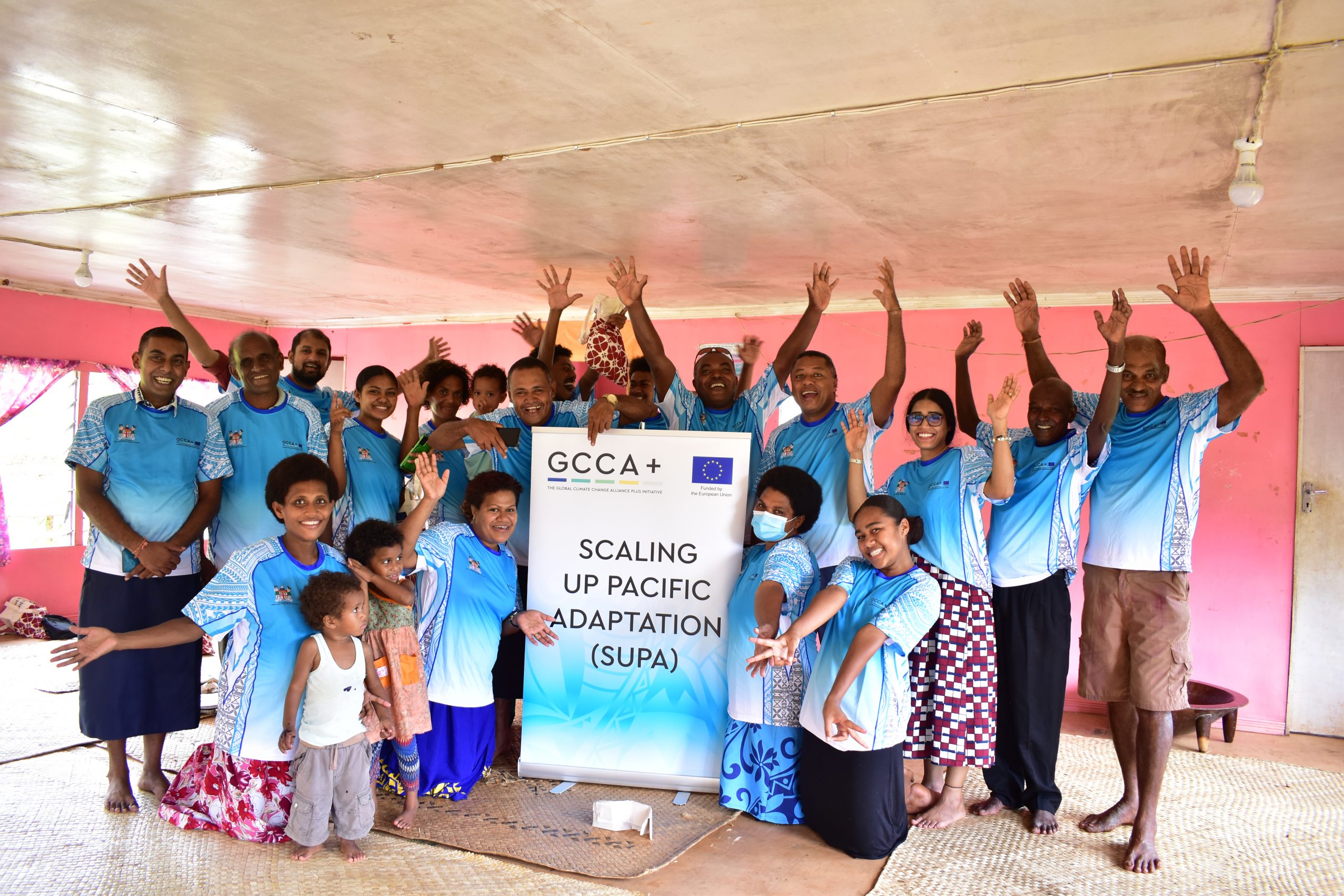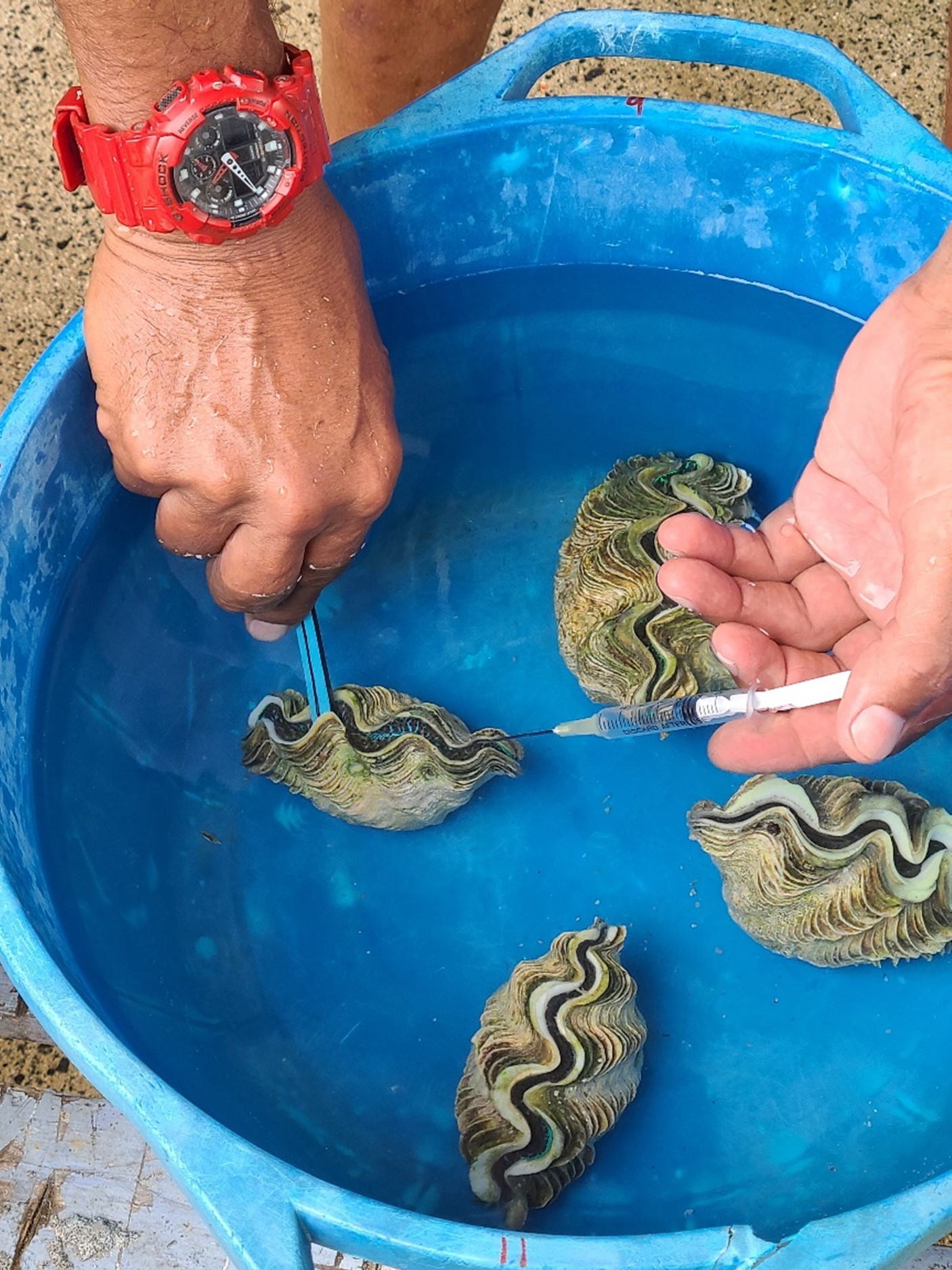Learning from the past to impact the future series: FSM
The Micronesia Conservation Trust with the help of the Department of Environment, Climate Change and Emergency Management (DECEM) staff field tested the tailored tools for impact assessment of past interventions set out to address water storage capacity at Nukuoro atoll, about 300 miles southwest of Pohnpei, the main island in the Federated States of Micronesia (FSM).
FSM, is one of the four countries that cooperated with the field testing of an impacts analysis methodology, to profile recent history of climate change adaptation work sourced from recently completed projects. These efforts are part of the European Union funded Global Climate Change Alliance Plus – Scaling Up Pacific Adaptation (GCCA+ SUPA) project.
FSM like most island countries is experiencing the impacts of climate change with rising temperatures, varying rainfall patterns and prolonged period of extreme dry conditions. These exacerbate the vulnerability of communities to freshwater scarcity, drought, vector-borne diseases and cyclones.
During a trip to Nukuoro atoll in November 2021, officers from DECEM and the project for Adaptation Fund assisted with the field-testing of the checklist and conducted the survey of 67 households.The assessment data included the condition of water sources, rainwater harvesting systems, and the community’s overall capacity to understand the conditions of the water systems.
As a result, DECEM is building an interactive mapping tool where all the data collected is fed into a database with details of the location and condition of tanks. For future planning purposes, one can access the site information on water sources, the rainwater harvesting potential and other data from marked tanks and water systems.
Over a two-day workshop in March 2022, the four trial countries which participated in the field testing met virtually to discuss and reflect on the findings of the impact assessments. The assessments involved different sectors: food security, water security, marine resources and coastal protection.
In discussing lessons learnt from the field trial, Winfred Mudong, the FSM national consultant, expressed the importance of community ownership in every aspect of the intervention.. This included the need to conduct community engagement in village hall meetings to discuss the findings of the field assessment and engaging the influencers in the community with policy makers to increase their knowledge capacity of the impact assessments and how to utilise the data collected to inform future planning of adaptation effort.
“Most of the homes on Nukuoro are low and have thatched roof, so people come up with their own way of collecting rainwater. We observed two types of rainwater harvesting practices, there are some homes with slanted tin roof that catches rain and this goes straight to the tank and other homes have a corrugated roof over a standalone tank with a guttering leading to a downpipe into the tank,” he said.
Based on field observation, household surveys and focus group interviews with local government council members, youth and women’s group in Nukuoro, survey participants agree that huge improvement has been noticed from their usual state of water security.
The Secretariat of the Pacific Regional Environment Programme (SPREP) which leads the impact assessment activities for the GCCA+ SUPA project will continue to work with partners in FSM and the other three trial countries to review the data on the completed sector interventions and assess the strength of the adaptation measures. The results will be shared with all ten countries involved in the GCCA+ SUPA project in 2022-2023 with a view to inform and guide the sustainability of future climate change adaptation interventions in the Pacific Island countries.
The GCCA+ SUPA project, funded by the European Union is delivered collaboratively by SPREP, Pacific Community (SPC) and the University of the South Pacific (USP) with the aim to enhance climate change adaptation and resilience within the Pacific region.
- Posted by
- Zhiyad Khan
Share




